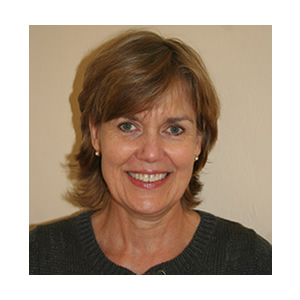Spring Issue Article

Embodied Awareness with Beth Haessig
When we are socializing with other people, our conversation often entails sharing something we know, such as “the government is doing such and such,” “She doesn’t like that,” or “Did you know the Giants lost last night”. Sharing information as such keeps us feeling as if we know stuff—we know what we’re doing, we know what life is about, and we know facts. But the real truth is, we know very little. In fact, we don’t know more than we know, about everything.
We are good at reporting events that took place, and we act like knowing the how and what of an event means we are in control in some form. “It’s going to snow tomorrow.”
The truth is, we are helpless and vulnerable beings, subject to random occurrences all around from our thoughts, feelings, and perceptions, to events outside of us, such as, whether the car in front of us cuts us off.
But don’t just take my word for it. Consider for yourself how little you really know about life. And if you were to imagine that a being in utero and just after birth is just as helpless, just as vulnerable in a certain way, as you are, how would you feel?
Change places with one right now, in your mind. Close your eyes and imagine. You would lose your conceptual world, you would lose your sense of self, your psychology, and therefore, “your story” of you—the me you think you are, the me that worries, plans, frets, is happy, feels empty— you take away your psychological self and be exactly as you are—a living being who does not filter their experience through concepts. You are a being who knows directly what feels what, who doesn’t know her vulnerability necessarily, but doesn’t have psychological concerns of appearing as if you know things, when you don’t. You know your vulnerability as the way things are, but you’re not overly concerned with it. Are you still imagining your in utero self? You have yet to make up stuff that’s not the truth that tries to hide your helplessness. You just live. You know nothing, but you know your experience. You know it as you live it and are not concerned with sharing it, understanding it, or making it different from what it is.
Are you at peace? Let’s just say you are freely doing your thing. Life’s thing. Living it but not fretting over it. Something larger than you (life itself?) is moving you along. Knowing or not knowing is not even on the table. You are just living, or being lived.
This state, I’ll call it, the state that you experience being lived, as opposed to “a self, living your life” is something akin to the spiritual states people practice. These states, where the psychological self dissolves temporarily (or for some, permanently) are experiences people have in deep meditation, flow states, or chanting/prayer, and are experienced as peaceful, sometimes blissful.
We need to be willing to live in the truth of our not-knowing, to let go of thinking we know (anything of real value) in order to drop into these states. Another way of stating this is, if we move from headspace and enter into bodyspace, we join our fellow humans in utero, and just born, consciously. This is what I mean by embodied awareness. We live from our being, rather than from a place that feels full of our psychological self’s desire to control, to seek, or to understand what is happening around us.
Before the birth of the psychological self, the self that knows that you are you, and I am me, there was this place of oneness. This issue is focused on that stage of human development. It’s interesting to me that that stage does life the way many humans long to live and feel—as if they are just in total trust of the flow of life, without concern for their own self-identity survival.
I don’t know. Just contemplating from the Pre and Perinatal perspective.
Beth L. Haessig, Psy.D. is a licensed psychologist, a certified body-centered psychotherapist, and a certified yoga therapist. She is the former president of the United States Association for Body Psychotherapy. Beth received her doctorate at the Graduate School of Applied and Professional Psychology (GSAPP) Rutgers University, specializing in Schools. She trained 5 more years in somatic psychotherapy at the Core Energetics Institute in NYC, founded by John Pierrakos, MD, and one year post graduate with Radical Aliveness/ Core Energetics in Mexico. In addition to being a partner/facilitator for Social Harmony program, she works privately with children, in schools and in an urban hospital as an integrative health psychologist.







